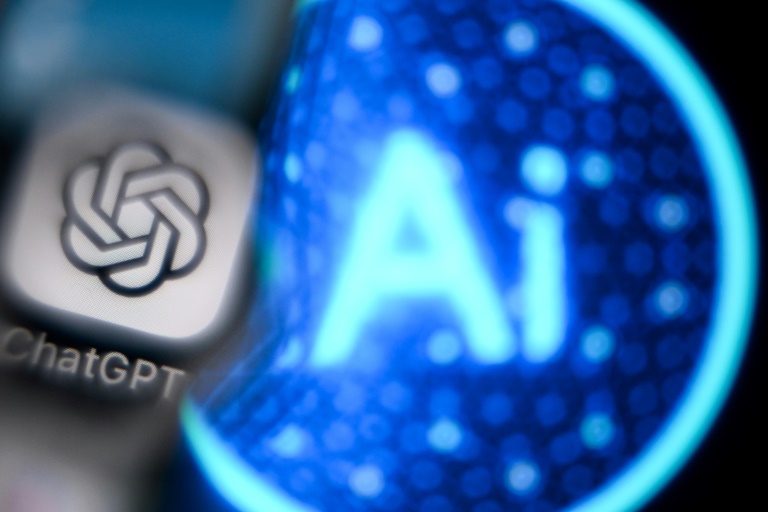Science
Artificial Intelligence: Can It Ever Match Human Creativity?

Artificial intelligence (AI) continues to revolutionize various sectors by enhancing productivity and decision-making. Yet, according to Akli Adjaoute, author of the new book Inside AI, the idea that machines could replace human creativity is highly unlikely. Adjaoute argues that while AI plays a transformative role, it cannot replicate the imagination and curiosity inherent in human beings.
In his book, Adjaoute delves into the realities of AI, contrasting them with the often exaggerated portrayals found in science fiction. He emphasizes that machines, despite their advanced capabilities, should not supplant the creative processes unique to humans. “The world was built by people who took risks and wanted to create something new,” he tells Digital Journal. His personal journey, having grown up in poverty, highlights the importance of imagination and determination in achieving success.
With over three decades of experience in developing mission-critical AI systems, Adjaoute founded Brighterion in April 2000. The company specializes in using AI to combat payment fraud, a significant issue that results in billions of dollars in losses each year. Today, more than 2,000 clients, including 74 of the 100 largest U.S. banks, rely on Brighterion’s software, processing over 150 billion transactions annually. Adjaoute eventually sold the company to MasterCard, further cementing his impact in the field.
Understanding AI’s Limitations and Potential
In Inside AI, Adjaoute seeks to provide a clear, accessible overview of artificial intelligence. He addresses a pressing question: can machines ever match or surpass human creativity? The book is designed for a wide audience, ranging from novices to seasoned enthusiasts, aiming to equip readers with a comprehensive understanding of AI’s capabilities and limitations.
Adjaoute covers several essential topics, including:
– Various AI techniques and methodologies
– Lessons learned from both successful and unsuccessful AI applications
– The distinct capabilities of AI systems compared to human cognition
– Common misconceptions regarding AI’s impact on jobs and society
– Strategies for managing AI projects effectively
He asserts that, as of now, AI lacks true intelligence, and many attempts at AI system development have faltered. Furthermore, Adjaoute maintains that AI systems are no match for human cognitive abilities, both currently and in the foreseeable future.
Ethical Considerations in AI Development
In addition to technical discussions, Adjaoute plans to explore ethical questions related to AI, such as bias, fairness, privacy, and accountability. Drawing from his extensive experience, he intends to outline the characteristics that will define the next generation of AI platforms.
“As we progress,” he notes, “we’ll also address ethical questions surrounding bias, fairness, privacy and accountability.” With the rapid evolution of AI technologies, understanding these ethical dimensions is crucial for ensuring responsible development and deployment.
Adjaoute’s insights provide a compelling perspective on the current state of AI and its potential future. While machines may excel in efficiency and data processing, the unique qualities of human creativity and ingenuity remain irreplaceable. As AI continues to advance, the dialogue around its limitations and ethical implications will be essential in shaping its role within society.
-

 Science3 months ago
Science3 months agoToyoake City Proposes Daily Two-Hour Smartphone Use Limit
-

 Health4 months ago
Health4 months agoB.C. Review Reveals Urgent Need for Rare-Disease Drug Reforms
-

 Top Stories4 months ago
Top Stories4 months agoPedestrian Fatally Injured in Esquimalt Collision on August 14
-

 Technology3 months ago
Technology3 months agoDark Adventure Game “Bye Sweet Carole” Set for October Release
-

 World3 months ago
World3 months agoJimmy Lai’s Defense Challenges Charges Under National Security Law
-

 Lifestyle4 months ago
Lifestyle4 months agoVictoria’s Pop-Up Shop Shines Light on B.C.’s Wolf Cull
-

 Technology3 months ago
Technology3 months agoKonami Revives Iconic Metal Gear Solid Delta Ahead of Release
-

 Technology3 months ago
Technology3 months agoApple Expands Self-Service Repair Program to Canada
-

 Technology3 months ago
Technology3 months agoSnapmaker U1 Color 3D Printer Redefines Speed and Sustainability
-

 Technology3 months ago
Technology3 months agoAION Folding Knife: Redefining EDC Design with Premium Materials
-

 Technology4 months ago
Technology4 months agoSolve Today’s Wordle Challenge: Hints and Answer for August 19
-

 Business4 months ago
Business4 months agoGordon Murray Automotive Unveils S1 LM and Le Mans GTR at Monterey









